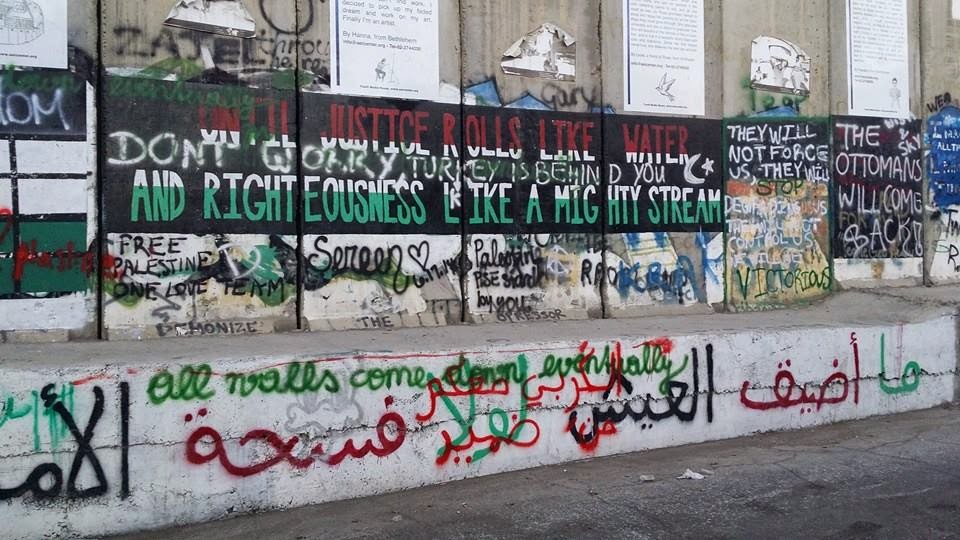As the fragile ceasefire
in place on Saturday was in effect, the citizens of Gaza temporarily opened
banks, searched for survivors and counted the dead. That day followed an unprecedented
turn out of Palestinians in the West Bank in support for Gaza on Laylat al-Qadr
(Night of Power) and the ‘Day of Rage’. On Thursday night, the date during
Ramadan that marks when the Prophet Muhammad revealed the first verses of the
Quran, tens of thousands of people around the West Bank were on the streets
venting their frustration and anger at the deaths of their brothers and sisters
in Gaza.
The most remarkable
show of this feeling was seen in Ramallah where the focus was on Qalandia checkpoint
near Jerusalem. The swathes of people amassing at the checkpoint inevitably
turned violent with Israeli forces and the Al-Aqsa Brigade exchanged live fire
and two Palestinians were killed. Friday was declared a ‘Day of Rage’ by the
Palestinians with protests and more clashes occurring all over the West Bank.
 |
| The '#48k' March heading to Qalandia Chekpoint |
Myself and the other
volunteer here were staying in east Jerusalem and as the last Friday of Ramadan
broke, we heard reports that Al-Aqsa Mosque was closed to all except over 50’s. The
whole of east Jerusalem had a repulsive smell as the police had used and dispersing
measure colloquially termed ‘skunk water’. This putrid chemical is thrown over
buildings and roads to dissuade Palestinians amassing together. Police and army
were all around the old city, setting up roadblocks and deploying water cannons
effectively separating east Jerusalem from the rest. We managed to get back to
Abu Dis in the evening and were met with the smell of tear gas that had been
used extensively by the army.
 |
| Police block roads from east Jerusalem to the Old City |
 |
| One of dozens of spent rubber bullet casings littering the streets of Abu Dis |
As the bombings and
ground operations in Gaza have resumed, the frustration and anger of Palestinians
in the West Bank endure. How this manifests itself in the days to come remains
to be seen. What is certain is that the pictures and stories seen and heard
about the situation in Gaza shows the suffering Gazans are enduring and how it
cannot continue at the behest of a government claiming it as self-defence.





































